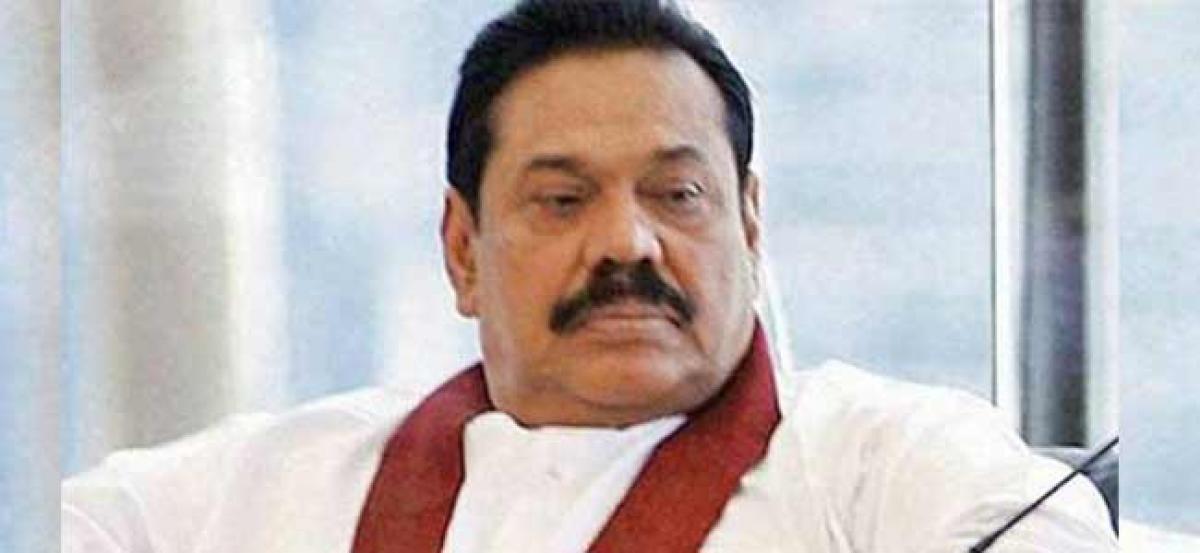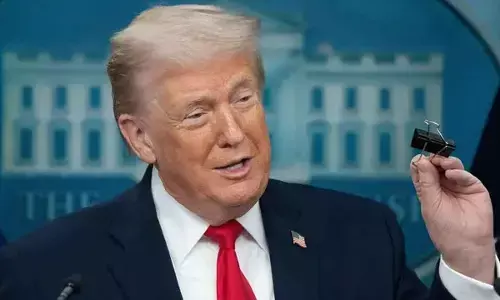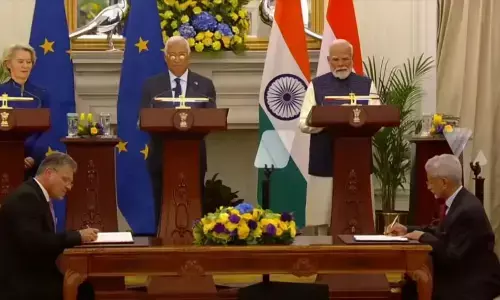Sri Lankan govt confusion after House no-trust in Mahinda Rajapaksa

Sri Lankas Parliament on Wednesday passed a noconfidence motion against Prime Minister Mahinda Rajapaksa, who was installed by President Maithripala Sirisena in a controversial move, a day after the Supreme Court overturned the presidential decree to dissolve the House and hold snap polls on January 5
Colombo: Sri Lanka’s Parliament on Wednesday passed a no-confidence motion against Prime Minister Mahinda Rajapaksa, who was installed by President Maithripala Sirisena in a controversial move, a day after the Supreme Court overturned the presidential decree to dissolve the House and hold snap polls on January 5.
Amid raucous scenes, Parliament on Wednesday met for the first time since October 26, when President Sirisena sacked Prime Minister Ranil Wickremesinghe, install-ed Mr Rajapaksa in his place and suspended the House, plunging the island nation into an unprecedented constitutional crisis.
The vote of no confidence against Prime Minister Rajapaksa has further complicated the political crisis as the former strongman has rejected the outcome of the floor test. It is not yet clear whether Mr Rajapaksa will resign or whether ousted Prime Minister Wickremesinghe, who has the support of 122 legislators, will return to power. The passing of the no-confidence motion comes as a major blow to President Sirisena and a victory to Mr Wickremesinghe.
Speaker Karu Jayasuriya announced that a majority of the 225-member Parliament supported the no-confidence motion against Mr Rajapaksa, the 72-year-old former strongman, who ruled the country for a decade from 2005.
“According to the voice, I recognise that the government has no majority,” Mr Jayasuriya announced in the House as Rajapaksa supporters protested.
He gave the ruling after the no-confidence motion was taken for a vote. The Speaker calculated the votes based on the voices he heard.
The Tamil National Alliance and smaller Muslim parties all supported the no-confidence motion. Three newly sworn Cabinet ministers and a state minister also crossed over to the Opposition benches in support. Prime Minister Rajapaksa needed the support of a minimum of 113 legislators in the House to prove his majority.
Supporters of Mr Rajapaksa refused to recognise the vote as legitimate, plunging the country deeper into crisis, as fears grow that the political dispute could spill into protracted instability in the island nation.
Mr Jayasuriya later adjourned the House until 10 am on Thursday. Speaker Jayasuriya has written to President Sirisena, asking him to take further constitutional action.
A copy of the motion with 122 signatures of legislators, who have expressed lack of confidence in Prime Minister Rajapaksa and his Cabinet, has been sent to Sirisena.
The Speaker’s office said that the Speaker has requested the President to take the next step under the Constitution.
Speaking after the no-trust vote, ousted Prime Minister Wickremsinghe claimed that his government had been restored after extra constitutional action by President Sirisena to sack him as the Premier.
“We will now take steps to ensure that the government in place before October 26 will continue. I wish to inform all government servants and police that you should not carry out illegal orders from the purported government that has failed to demonstrate the confidence of the people,” he said.
Mr Wickremesinghe has denounced Mr Sirisena’s attempt to remove him from office and refused to leave the official Prime Minister’s residence, claiming the President does not have the power to take such action.
Senior leader of Wickremesinghe’s United National Party (UNP) Sajith Premadasa said that the Government headed by Rajapaksa clearly lost the floor test.
He demanded that Prime Minister Rajapaksa must now step down.However, Dinesh Gunawardena and Vasudeva Nanayakkara, both Rajapaksa’s senior aides, said the Speaker’s action was illegal.
Housing minister Wimal Weerawansa said the floor test in Parliament was illegal and so Rajapaksa will continue as Prime Minister, further deepening the political crisis that has paralysed the government for nearly three weeks.
The Parliament session on Wednesday comes a day after the Supreme Court on Tuesday overturned President Sirisena’s controversial decision to dissolve Parliament and halted the preparations for snap polls on January 5.

















